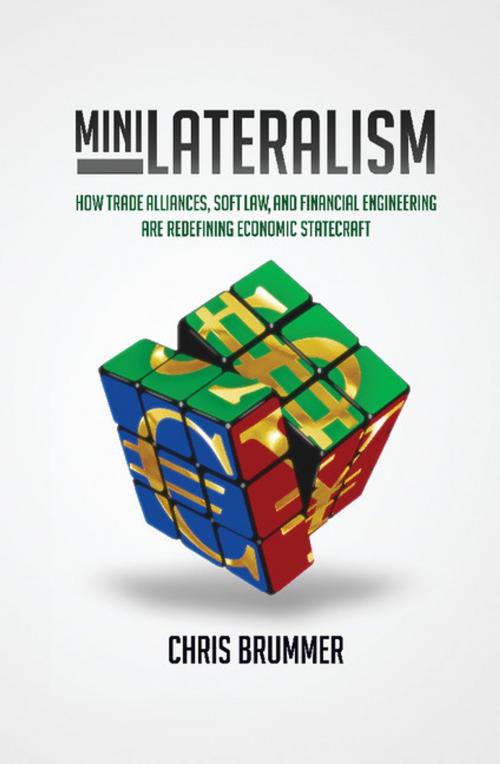Minilateralism
How Trade Alliances, Soft Law and Financial Engineering are Redefining Economic Statecraft
Nonfiction, Reference & Language, Law, International, Business & Finance| Author: | Chris Brummer | ISBN: | 9781139862448 |
| Publisher: | Cambridge University Press | Publication: | April 7, 2014 |
| Imprint: | Cambridge University Press | Language: | English |
| Author: | Chris Brummer |
| ISBN: | 9781139862448 |
| Publisher: | Cambridge University Press |
| Publication: | April 7, 2014 |
| Imprint: | Cambridge University Press |
| Language: | English |
Economic diplomacy is changing. The multilateral organizations that dominated the last half of the twentieth century no longer monopolize economic affairs. Instead, countries are resorting to more modest 'minilateral' strategies like trade alliances, informal 'soft law' agreements, and financial engineering to manage the global economy. Like traditional modes of economic statecraft, these tools are aimed at both liberalizing and supervising international financial policy in a world of diverse national interests. But unlike before, they are specifically tailored to navigating a post-American (and post-Western) world where economic power is more diffuse than ever before. This book explains how these strategies work and reveals how this new diplomatic toolbox will reshape how countries do business with one another for decades to come.
Economic diplomacy is changing. The multilateral organizations that dominated the last half of the twentieth century no longer monopolize economic affairs. Instead, countries are resorting to more modest 'minilateral' strategies like trade alliances, informal 'soft law' agreements, and financial engineering to manage the global economy. Like traditional modes of economic statecraft, these tools are aimed at both liberalizing and supervising international financial policy in a world of diverse national interests. But unlike before, they are specifically tailored to navigating a post-American (and post-Western) world where economic power is more diffuse than ever before. This book explains how these strategies work and reveals how this new diplomatic toolbox will reshape how countries do business with one another for decades to come.















